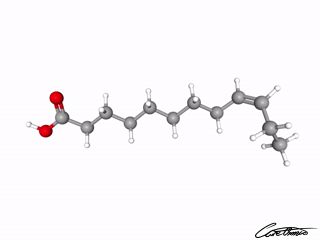Monounsaturated Uncommon Fatty Acids: How To Use Them For Your Benefit
Uncommon monounsaturated fatty acids are acids that are rare to find. They don't belong to a group like the omegas or the trans.
These uncommon acids we describe below are all members of the monounsaturated fatty acids family.
The most frequently consumed monounsaturated fatty acids are dietary oils, like canola and olive oil.
Tip! If you are looking for a specific monounsaturated fatty acid, I recommend you use the expanded toc to find it.
Table of Contents
Is Monounsaturated Fatty Acids Always Good?
Research shows that there are some monounsaturated fatty acids that are good for us, but there are some that isn't.
Monounsaturated fatty acids might improve insulin resistance ◳ by influencing the composition of cell membranes.
But some clinical trials with diets high in monounsaturated fatty acids showed no effect on blood pressure ◳.
Our Articles On Uncommon Monounsaturated Fatty Acids
Below you will find a list of uncommon monounsaturated fatty acids. You can find out what they are and what they might be able to do for you.
Lauroleic acid (12:1) is quite uncommon

Lauroleic acid is an uncommon fatty acid that is found in dairy products.
You can find more information about lauroleic acid in What Is Lauroleic Acid (12:1) & What Foods Can I Find It In?
Pentadecenoic acid (15:1) is rare in nature but good for you
Pentadecanoic acid is a compound in whole fat milk. You can find more information at What Is Pentadecenoic Acid (15:1) & What Foods Can I Find It In?
It is an odd-chain fatty acid that might lower the risks of chronic inflammation, cardiovascular disease, and other diseases.
Check out the benefits Pentadecenoic acid has in Pentadecenoic Acid (15:1): 3 Research-Backed Benefits
Heptadecenoic acid (17:1) an unclear acid
Heptadecenoic acid exists in human skeletal muscle and tissues.
But the origin of heptadecenoic acid is not known, and neither it what kind of benefits it might possess.
Learn more about it in What is Heptadecenoic Acid (17:1) & What Foods Can I Find It In?.
Erucic acid (22:1) not for children
You can mainly find erucic acid in plants such as canola, and rapeseed. You can find more information about erucic acid and why you shouldn't give it to your child, in What Is Erucic Acid (22:1)? Should I Give It To My Child?.
It poses a possible health risk for highly exposed children, and especially to infants that can not break down erucic acid. Check out all the side-effects that might come from consuming this acid in Erucic Acid (22:1): 5 Research-Backed Side-Effects .
